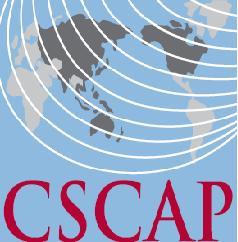CSCAP (Council for Security Cooperation in the Asia Pacific) Retreat: the ASEAN Regional Forum, and the Rules-Based Order
Home CSCAP (Council for Security Cooperation in the Asia Pacific) held a special Retreat at the Grand Millennium Hotel, Kuala Lumpur, on 21-22 February to discuss first, the future of the ASEAN Regional Forum (ARF) and secondly, the concept of the 'Rules-Based Order'.
CSCAP (Council for Security Cooperation in the Asia Pacific) held a special Retreat at the Grand Millennium Hotel, Kuala Lumpur, on 21-22 February to discuss first, the future of the ASEAN Regional Forum (ARF) and secondly, the concept of the 'Rules-Based Order'.
The discussion on the ARF was based in part on a collection of articles included as a section in the latest Regional Security Outlook (published annually on behalf of CSCAP). The collection has the title "The ASEAN Regional Forum - the next 25 years'.
The ARF has been widely criticized: one comment stated that it had "achieved nothing terribly significant in its first 25 years".
A 'Concept Paper', prepared in 1995, had anticipated that the ARF would develop in three stages - moving from confidence building, to preventive diplomacy, and then to conflict resolution. Its critics suggest it has never really moved beyond confidence building.
The Retreat considered various recommendations which CSCAP might make to the ARF, to assist that organization to strengthen its focus on preventive diplomacy and conflict resolution.
One view at the Retreat, however, was that the 1995 Concept Paper was too ambitious. It was written at a time when many were confident that the world was experiencing not just the globalising of economies but also the convergence of political and social thinking.
Since that time, it has become increasingly clear that the task of confidence building is complex and difficult - especially in the Asia Pacific region. Those who dismiss the ARF as a 'talk shop' underestimate the importance of 'talk' - in building trust and creating what the Concept Paper called "a sense of community among participants" - and tend to forget that, as the name makes clear, the ARF was explicitly designed as a 'forum'.
At the Retreat, CSCAP members talked - as they have before - about how the different ASEAN-led institutions - the ARF, the East Asia Summit and the ASEAN Defence Ministers Meeting-Plus - might be better coordinated. The point was also made that in some contingencies one sees the effective conflation of confidence-building, preventive diplomacy and conflict resolution.
Nevertheless, a theme of the meeting was that we need to recognise the continuing importance of the ARF's confidence building role - and then think about how exactly CSCAP can contribute to that activity.
CSCAP, following the Retreat, is developing plans to achieve this objective.
In the second part of the Retreat, dealing with the 'Rules-Based Order', deliberation took place regarding a proposal made at the last CSCAP Steering Committee Meeting, held in Perth (Australia) last November that CSCAP consider the merits of a study group on the RBO. In Perth, a discussion took place with respect to the content, purposes and origin of the so-called 'Rules-Based Order'.
Faced with the complexity of the issue, and the confusion and contradiction encountered, the suggestion was made that CSCAP attempt to map out the different ways in which 'Rules-Based Order' is understood. In the February Retreat CSCAP decided to carry out a survey of Member Committees of the organization, asking each Committee to say how it thought the phrase 'Rules-Based Order' is perceived or interpreted in its particular country.
The Retreat participants anticipated that the answers to this mapping survey would indicate specific differences not merely in the 'rules' but also in the scope of 'rules'. Does the term 'Rules-Based Order' cover norms, principles and values? What spheres of activity does it include, economic as well as political? Does it refer only to relations between states, or extend to the domestic administrative arrangements of individual states? It was also felt that in some societies international talk about a 'Rules-Based Order' would be viewed with suspicion, or seen as deliberately hostile.
The survey is intended to be carried out during March and April. CSCAP will then make a decision as to whether to form a Study Group to analyse further the 'Rules-Based Order'.
The Co-Chairs of CSCAP are Professor Suchit Bunbongkarn and Professor Anthony Milner (Visiting Professor, Asia Europe Institute and the Centre for ASEAN Regionalism, University of Malaya).